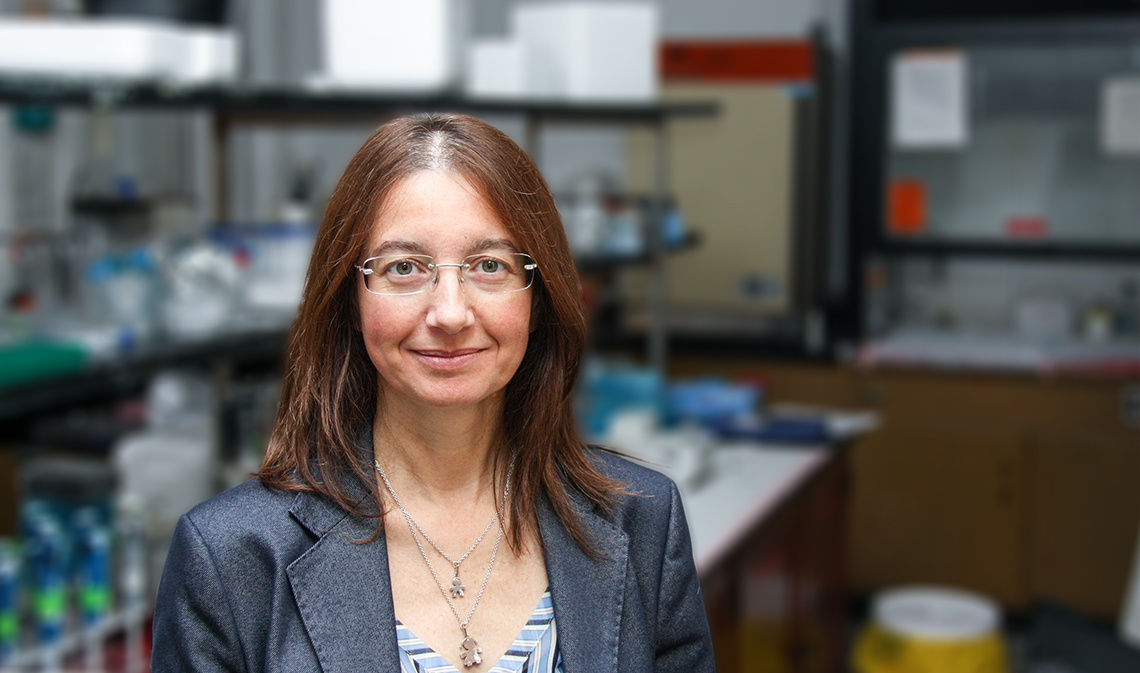The gut factor in childhood nutrition and health

This story is one of many that reveal the extraordinary legacy of Boundless: the Campaign for the University of Toronto, which ended on December 31, 2018. Read more inspiring stories of impact and discover why more than 100,000 people came together to make the Boundless campaign an historic success.
Though it’s no secret that good nutrition is a positive factor for child development, what is less known is how the various micro-organisms living within the human gut—especially the gut of a rapidly developing child—figure in nutrient absorption and the body’s long-term health.
Enter Professor Elena Comelli, the U of T Lawson Family Chair in Microbiome Nutrition Research. Her groundbreaking research is helping to shed light on the integral relationship between the gut, childhood nutrition and health.
“The microbiome is critical to almost every aspect of human functioning,” says Comelli, who is also a researcher with the Joannah & Brian Lawson Centre for Child Nutrition. “Microbes inhabit just about every part of the human body. They’re instrumental in helping our immune system recognize friend from foe, breaking down and absorbing nutrients and serving as a living barrier to pathogens on our skin, mucous membranes and in our gut.”
A healthy microbiome is particularly important in children. The first 1,000 days are a critical window of opportunity for early childhood growth and development—they can either make or break a person’s health for the long term.
Comelli’s group is investigating how dietary interventions (including probiotics and vitamin D) early in life can help put children on the right microbiome track to promote healthy growth and prevent disease later in life.
A particular focus of her research is the relationship between the gut microbiome and childhood obesity. “As newborns, our guts are practically sterile,” she observes. “But we acquire microbes very rapidly, in the first two to three years of life. So it’s critical that we have the ‘right’ microbiome composition from an early age because if things go wrong, we may be stuck with the ‘wrong’ one.”
Comelli’s work has strong public health implications. “Hopefully, it will help inform nutritional guidelines,” says Comelli, “and lead to solutions that help treat patients and prevent disease—not only in children, but in people of all ages.”
Recently, Comelli, her group and their collaborators have also theorized the existence of a gut microbial-bone axis—the effect of the gut-associated microbial community on bone health—which holds potential to ensure the growth and development of a healthy skeleton. Another focus is on probiotics and microbial regulation of gene expression in the gut.
“Holding the Lawson Chair has had a tremendous impact on my research program,” she says. “It has allowed me to expand my research focus and explore ideas that may not be mainstream. As a researcher, the freedom to take risks and think outside the box is an incredible gift. The Lawson Chair also enables me to supervise and teach more students, which is critical to developing our knowledge and expertise in the microbial field.”
